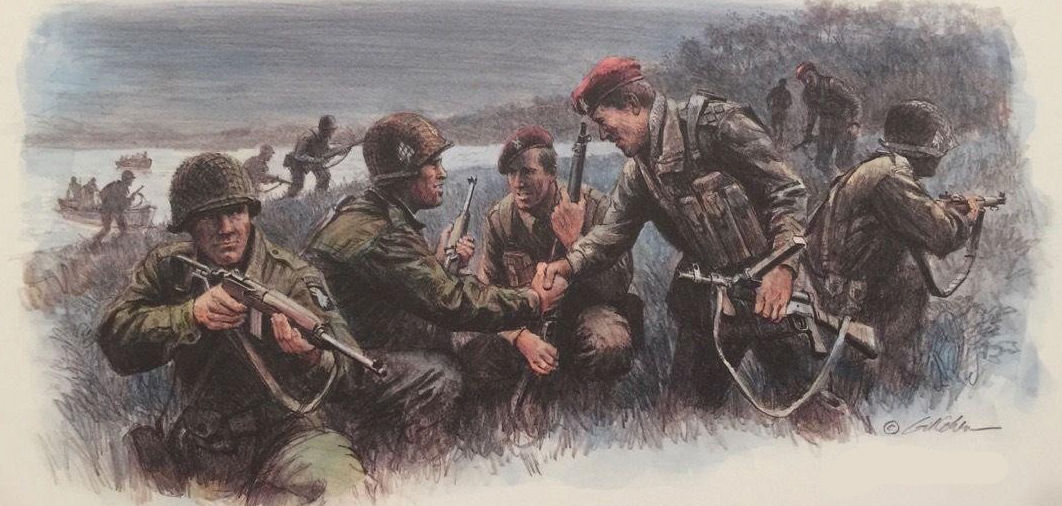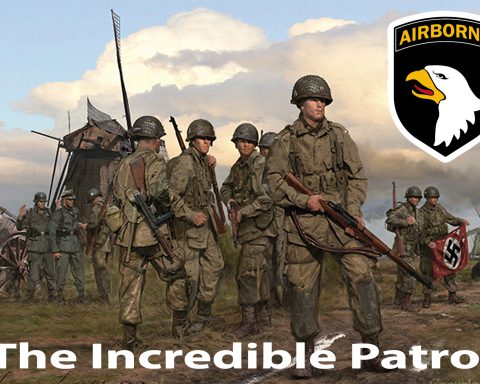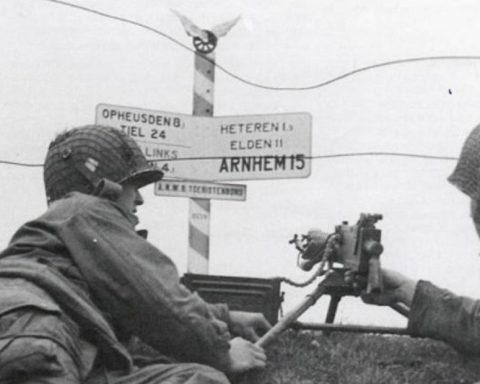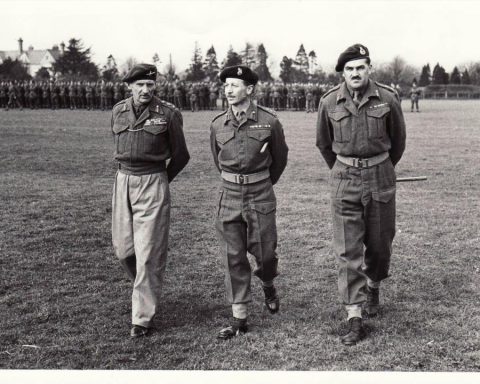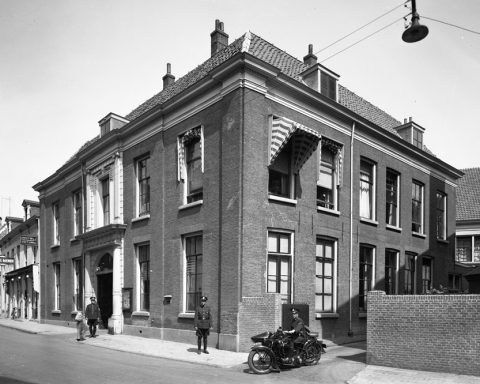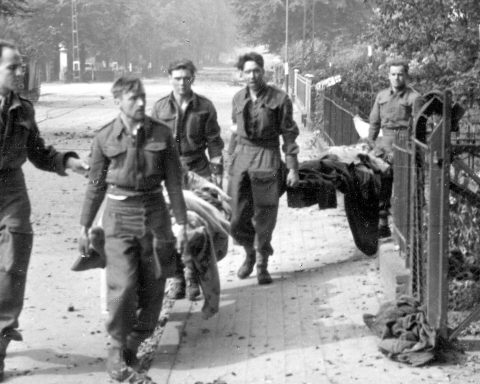After the British withdrew across the Rhine during the night of September 25 to 26, many paratroopers and air crews were still left behind on the north side of the river. Through a daring escape, 130 soldiers managed to return to the Allied lines a month later.
The escape, called Operation Pegasus, is considered one of the most successful escapes of the Second World War. Pegasus became a success thanks to the courage and commitment of the resistance by Dutch citizens.
The course of Operation Pegasus is easiest to tell through the story of Lieutenant Colonel David Dobie. Dobie was the commander of the 1st battalion of the 1st Airborne Brigade during the fighting. His battalion had been decimated during the fighting around the Elisabeth Gasthuis and Dobie himself had been wounded in the arm during the fighting.
Dobie was admitted to the Elisabeth Gasthuis, but he escaped and walked straight through enemy territory to the landing areas near Wolfheze. There he discovered that the British had now withdrawn.
Wandering across the Ginkelse Heide, Dobie was found by Elisabeth Spiers, who was a member of the resistance. She put Dobie in touch with ‘Tonny’. Tonny was the pseudonym of Menno de Nooy, one of the leaders of the resistance in Ede.
Menno de Nooy told Dobie that he was not the only British paratrooper who was in hiding in Ede and the surrounding area. More than a hundred British soldiers were in hiding spread across the area. These included a few high-ranking military men, such as General Lathbury; Dobie’s immediate commander and Major Tatham-Warter, who had fought at the Rhine Bridge.
Dobie wrote after the war: “It is almost unimaginable, but during the short time he was in hiding, Major Tatham-Warter, in collaboration with the resistance, had mounted an operation aimed at transferring so many British people to Allied lines. ”
Dutch resistance
The resistance in Ede was extremely well organised. To Dobie’s surprise, the resistance even had telephone contact with the Allies in Nijmegen via a telephone line to occupied territory that they had managed to keep open.
The Allied ground army on the south side of the Rhine had been informed by the resistance via this telephone line of the plan to transfer more than a hundred stranded soldiers. But in order to make arrangements with the Allied ground forces, it was considered wiser if someone was ferried across the river to discuss the entire escape operation with the headquarters of the Allied ground forces.
Colonel Dobie was the one who made the crossing on the night of October 17, with the help of a few resistance fighters.
Dobie: “We crossed in a steel rowing boat. The sturdy P. rowed with mighty strokes. On the other side we said goodbye and I said goodbye to the beautiful people who risked their lives for us.”
Dobie was taken by jeep to the headquarters of General Horrocks, who headed the Allied ground army. The original plan was developed together with Horrocks and his staff. Major Tatham-Warter was informed of the plans by telephone.
The British on the north side would meet British engineers and units of the American 101st Airborne Division that was stationed in the Betuwe on the north side of the river.
Crossing
On the night of October 22 to 23, the time had come. From their hiding places, 130 soldiers and eight Dutch civilians were brought together at the meeting point. The meeting point was 500 meters from a German position with machine guns.
Dobie: “Major Tony Hibbert arrived at the meeting point in a truck with 20 men. On his way he had encountered a platoon of German soldiers on bicycles who were ringing their bicycle bells and shouting at them to get out of the way.”
From nine o’clock in the evening the British walked cautiously in groups to the river. Around midnight everyone was present at the agreed point on the north bank. A signal was given to the south bank with light signals.
Immediately a large group of boats sailed across from the south bank. On board the boats were American soldiers from Easy Company of the 506th Infantry Regiment of the 101st Airborne Division. The well-known TV series Band of Brothers is about the soldiers of Easy Company.
The soldiers of Easy Company established a defensive perimeter on the north bank in case the Germans sensed trouble. But with the exception of a brief firefight in which there were no casualties, the Germans did not show themselves.
Major Taham-Warter later said that he suspected that the Germans knew something was going on, but were too afraid to confront them in the dark.
In ninety minutes, all British and Easy Company soldiers were transferred to the south bank. On the south bank, the British were taken to a farm, where they were given food and drink. They were then transported by truck to Nijmegen where Colonel Dobie had organized a party with champagne.
Operation Pegasus was successful.
After the war, Colonel David Dobie was awarded the Military Order of William for his role in Operation Pegasus.

